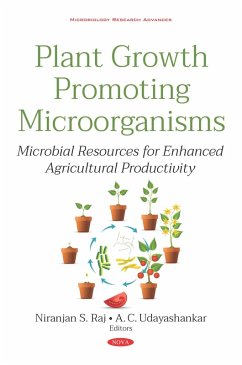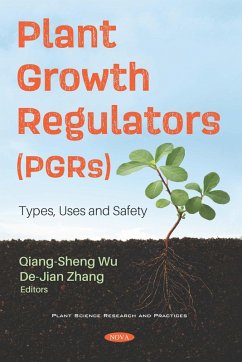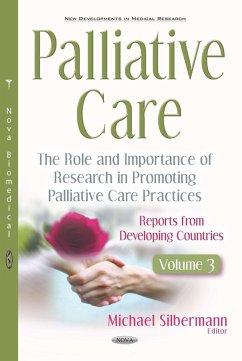
PGPR (Plant Growth Promoting Rhizobacteria) for Plant Stress Management (eBook, PDF)

PAYBACK Punkte
106 °P sammeln!
With the continuous decline of the area under cultivation and the increase in human population, one of the major challenges is to increase crop productivity to feed everyone. A major part of crop loss is attributed to different types of plant stresses (both biotic and abiotic). Hence by managing these stresses, we may increase the global production to ensure food security. Different approaches have been adopted in the recent past to reduce crop loss due to plant stress, but some of them like use of agrochemicals had significant ecological concerns. Thus, it was desired to protect the crop plan...
With the continuous decline of the area under cultivation and the increase in human population, one of the major challenges is to increase crop productivity to feed everyone. A major part of crop loss is attributed to different types of plant stresses (both biotic and abiotic). Hence by managing these stresses, we may increase the global production to ensure food security. Different approaches have been adopted in the recent past to reduce crop loss due to plant stress, but some of them like use of agrochemicals had significant ecological concerns. Thus, it was desired to protect the crop plants from different types of plant stresses in an eco-friendly, and environmentally sustainable manner. In the natural environment, the plants are closely associated with the soil microbes. Some of them are already known to pro mote promote plant growth to a considerable extent. Several researchers have demonstrated that the inoculation of PGPR (Plant Growth-Promoting Rhizobacteria) is not only effective to enhance plant growth but also their tolerance towards different types plant stresses. Therefore, they have the capability to increase the plant growth even under the stressful environments. The present book therefore, is an up-to-date compilation of the role of PGPR in plant stress management in the form of 13 edited chapters, written by renowned researchers and academicians. The book deals with the different aspects of PGPR from their isolation, characterization, mechanisms of stress alleviation, and commercialization etc. Different mechanisms of different PGPR, their combinations with other soil micro- and macro-organism for an effective plant stress management have also been discussed. Overall this book is a whole-some package to describe stress management roles of PGPR reported till date.
Dieser Download kann aus rechtlichen Gründen nur mit Rechnungsadresse in A, B, BG, CY, CZ, D, DK, EW, E, FIN, F, GR, HR, H, IRL, I, LT, L, LR, M, NL, PL, P, R, S, SLO, SK ausgeliefert werden.













